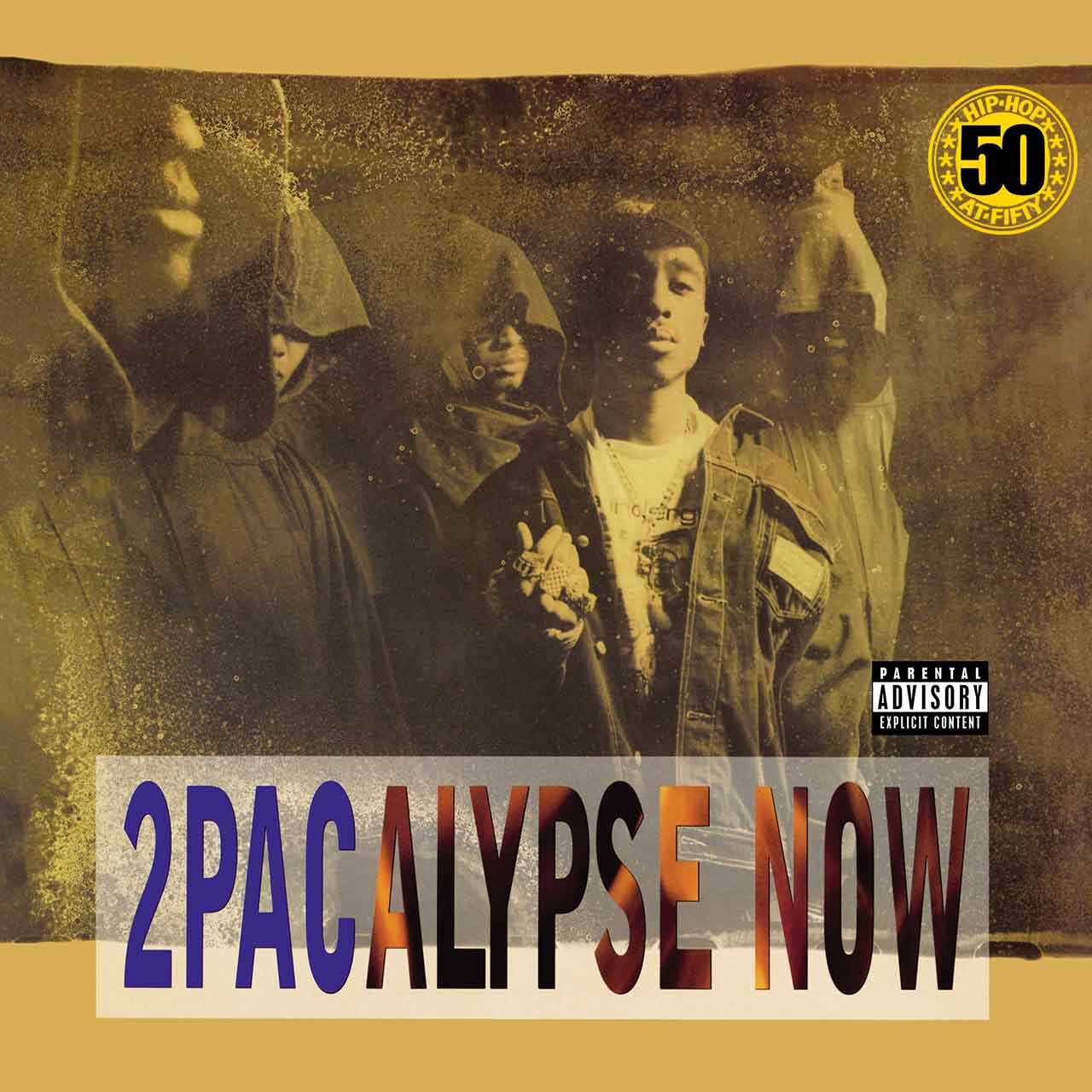It’s strange to remember a time when 2Pac was just another rapper, and not yet a generation-defining figure of mythic proportions. That’s partly because Tupac Shakur arrived nearly fully formed on his debut album, 1991’s 2Pacalypse Now. From the beginning, 2Pac was making the kind of waves that would come to define his life and music until his tragic murder in 1996. Few artists – in almost any genre, let alone hip-hop – did so much in such a short time.
So much of it started here, however: 2Pacalypse Now was like a bomb chucked into the handbag of the music industry, as influential as it was controversial. 2Pac’s words were immediately pored over like Talmudic scripture by his acolytes and enemies. Hip-hop heads treasured his poetic verve and revolutionary worldview, while conservatives like Dan Quayle were terrified by his blunt anti-establishment messaging.
Listen to 2Pac’s 2Pacalypse Now now.
2Pac emerged from a tradition of socially engaged West Coast gangster rap like Ice-T and Ice Cube and the direct lyrical action of Public Enemy and Boogie Down Productions. But his political perspective was even sharper than his rap idols, largely because of the radical lineage he was born into. Tupac’s biological parents, Afeni Shakur and Billy Garland, were active members of the Black Panther Party, while numerous members of his close family, including stepfather Mutulu Shakur and godmother Assata Shakur, were involved in the Black Liberation Army.
2Pac furthered his family’s legacy of proud militancy most directly on songs like “I Don’t Give a F—,” which culminates in a kiss-off to the FBI and CIA. On “Words of Wisdom,” he speaks directly to the necessity of political education — “No Malcolm X in my history text, why is that? / Cause he tried to liberate and educate all Blacks” — teaching his listeners the radical Black history often erased by a racist society. The song’s outro sees him embrace his inner Gil-Scott Heron, plainly stating his case against the ingrained racism of white America: “I charge you with the crime of rap, murder, and assault / For suppressing and punishing my people… / For robbing me of my history.” With the knowledge of how his life would end, it’s hard not to take so many of 2Pac’s lines as forewarning from someone who knew there would always be a target on his back as an outspoken Black man with a firm worldview.
Compared to the charismatic g-funk style of 2Pac’s biggest hits, the sound of 2Pacalypse Now tilts a little more old school, with breakbeats and turntable scratches on tracks like “Something Wicked.” A jazzy bassline and slick piano support “If My Homie Calls,” and it sounds more like Native Tongues than most of 2Pac’s West Coast peers. Producer Stretch constructs “Crooked Ass N—a” out of two familiar N.W.A. samples, anointing 2Pac as the successor to the outspoken edge of “F— the Police.” But 2Pac takes it further: Other rappers of the era knew from lived experience that the world was pitted against them as Black men, but 2Pac’s talent was in telling you how and why. 2Pac wrote prescriptively to give his listeners the tools to fight back. And these political anthems weren’t just fiery Jeremiads – 2Pac demonstrates a more soulful side on the bleak “Brenda’s Got A Baby,” and the Stevie Wonder flip “Part Time Mutha,” rapping in despairing detail about ordinary people struggling to survive.
Though his name was canonized in the halls of hip-hop from almost the moment 2Pacalypse Now dropped, 2Pac was never doing it for himself: he spoke to the generations after him, who continue to find power and inspiration in his revolutionary fervor. We’re lucky to have had him as long as we did.
Listen to 2Pac’s 2Pacalypse Now now.
In celebration of hip-hop’s 50th anniversary, uDiscover Music is publishing 50 album reviews throughout 2023 that highlight the breadth and depth of the genre. The Hip-Hop 50 logo was designed by Eric Haze, the mind behind iconic graphics for EPMD and LL Cool J.




